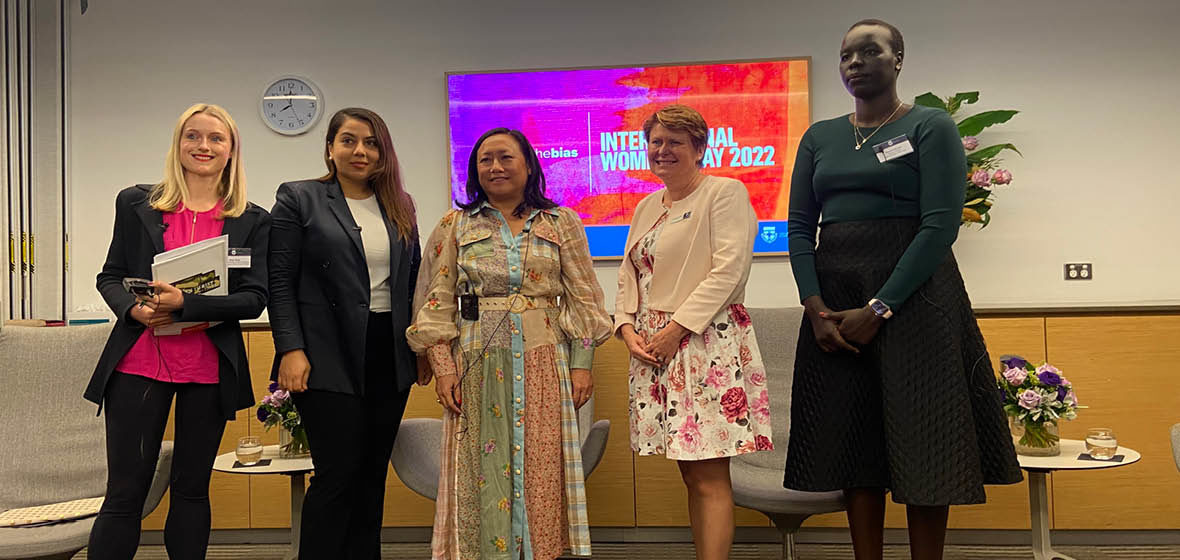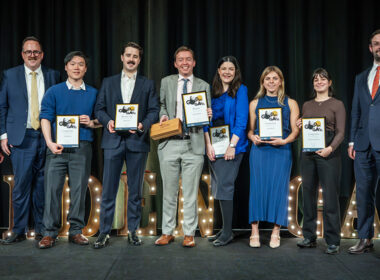Award-winning human rights advocate and lawyer Mariam Veiszadeh was the “CEO of her household” long before she was appointed to lead Media Diversity Australia.
The mother-of-two born in Afghanistan said this reality was brought into sharp-relief for many women during COVID-19 lockdowns, forced to take on more responsibility in juggling their chosen careers and family commitments while confined to their house.
Veiszadeh questions whether the pandemic had an “equalising impact” on gender discrimination and is pushing for organisations to implement strategic policies, including making equal parental leave available to men. She said this will enable greater equality in the long run.
“I often say: ‘Yes, I am the CEO, but women tend to be the CEOs of their households too … When you’re the CEO of your household, you are also thinking about the mental aspect of things. It’s the planning and remembering and the birthday presents,” Veiszadeh said.
“Initially [the pandemic] helped to equalise things. But what happened as Sydney and Melbourne came out of lockdown, a lot more men were returning to offices and women weren’t. I spoke to many people about this challenge where if you are not seen, it impacts promotions and a whole host of things. Women are now still taking on the lion share of domestic chores, in addition to having careers.”
This “balancing act” resonates with lawyer and human rights and refugee advocate, Nyadol Nyuon.
Nyuon and Veiszadeh, together with Non-Executive Director Katrina Rathie, spoke to 70 women and a handful of brave men, as part of the Law Society of NSW’s International Women’s Day panel event and breakfast on Wednesday.
While enduring Melbourne’s strict “stage four lockdown”, the single working mother-of-two Nyuon started the podcast ‘It’s Been Hard Lately’, bred out of a need to pause and digest the way things were changing inside and outside her home.
“Just because I didn’t have enough to do as a single mum, working full time, I also started a podcast,” Nyuon laughed.
Born and raised in a refugee camp in Ethiopia, Nyuon always knew she wanted to be a lawyer. She advocates for Australian-African and Melbourne’s South Sudanese communities, and admittedly encounters racism and entrenched bias just about every day.
“I go get a coffee and someone says: ‘What do you do?’, I say, ‘I’m a lawyer’ and they say, ‘No, you can’t be … maybe you’re a basketballer’. How are you supposed to be a lawyer concentrating on a contractual deal when you can’t even go to a coffee shop without being seen as a potential criminal? Without being asked questions that feel like every part of your humanity is disgusting or a danger to someone. Your authority being shredded in your own eyes,” Nyuon said.
“When people say: ‘You make everything about race,’ I think, ‘How privileged you don’t have to’”.
The trio of renowned speakers unpacked this year’s IWD theme #BreakTheBias along with the United Nations concept ‘Changing Climates: Equality today for a sustainable tomorrow’.
The panel challenged organisations to consider what diversity means to them; implementing a practice that is not just about gender but inclusive of race and disability. They also discussed the way women are represented in the media, challenges climbing the career ladder and what businesses can do to get more women in the room.
“Irrespective of who you are, where you come from, what language you speak, who you love, what God you believe, if you want to do something, you should be able to. That’s what we are trying to change,” Veiszadeh said.
At the end of 2021, The Law Society of NSW published new guidelines for improving diversity in the profession. According to that data, the number of practicing solicitors in NSW had increased from 22.5 per cent in 2001 to 28 per cent in 2020.
NSW Patron of the Australian Asian Lawyers Association, Katrina Rathie was part of a movement in 2017 that saw Sydney’s major law firms agree to measure the cultural diversity in their organisation.
“It is so important we look beyond gender to cultural inclusion, to have the whole diversity of culture, race, thought and opinion so the legal profession is really truly representative of the communities we serve. Enabling linguistic diversity and multicultural communities to flourish.”
Law firms can sign up to the Law Society’s Charter for the Advancement of Women and can access model discrimination and harassment policies along with cultural diversity guidance.




